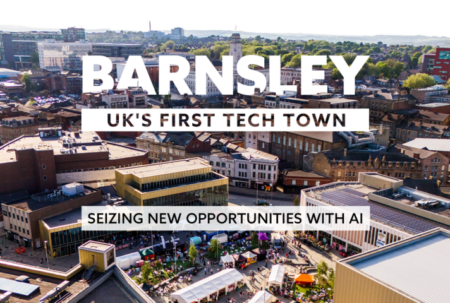Advanced automation is needed to address society’s most pressing challenges, argues a new research report co-produced by the world’s top-ranked think tank for science and technology policy, and a leading global IT services provider.
According to the Information Technology and Innovation Foundation (ITIF) and the Leading Edge Forum, the research arm of DXC Technology, innovations such as AI, smart cities and grids, digital platforms, shared ledgers, precision agriculture and medicine, robotics, and advanced authentication and security are needed to overcome today’s “stagnant public and private sector productivity”.
The report suggests that advanced automation “is the most direct way to lift wages and living standards, re-shore work back from low-cost nations, affordably support ageing populations, reduce debt-to-GDP levels, and free-up human capital and other resources for important new societal tasks”.
“It’s unfortunate that idea of accelerating automation stirs such deep fears on both the left and the right, because the truth is that advanced economies like the USA and Europe will need to automate as much as possible to address the many challenges they face,” said ITIF president Rob Atkinson, co-author of the report.
“What’s more, fears about automation making humans obsolete are once again misplaced. The bigger and more complex economies become, the more capacity and demand they create. If society is to meet its most pressing 21st-century challenges, massive numbers of people will need to be re-skilled, redeployed, and fully engaged.”
David Moschella, report co-author and Leading Edge Forum research fellow, added: “While there will be no quick fixes, over the next decade, modern societies will need to steadily transform their energy, transportation, agricultural and other core systems.
“They will also face massive competitive, environmental, demographic, financial and life-long learning pressures. And this doesn’t even count the many new opportunities and demands that the information age will surely create.
“There is so much work to be done that without greatly enhanced public and private sector productivity, labor, skill and resource shortages seem inevitable.”
The report claims that “many of today’s most promising digital initiatives can only be brought to fruition by large organisations and the sectors they serve, and this will require complex changes in the way that both public and private sector enterprises operate”.
To accelerate change throughout the 2020s, the report recommends that governments support the automation imperative in three main ways:
– Recognise that public sector leadership will be essential in establishing important new societal platforms in areas such as: health care records, smart cities and grids; reliable identification and authentication; efficient payments and taxation; coherent satellite and drone management; trusted shared ledgers and open data; more innovative defence and law enforcement; and the associated security, oversight, and standards-setting that comes with these important initiatives;
– Visibly support the transformation of traditional enterprises, including government enterprises, and their associated industries by ensuring that laws, rules, regulations, incentives, liabilities, political attitudes, and worker skills do not act as barriers to the needed changes;
– Look around the world to see where innovative societal platforms are emerging and readily embrace these learnings to step-up the pace of their own automation. Smaller nations will often be important societal platform leaders.
You can read the report in full here.









